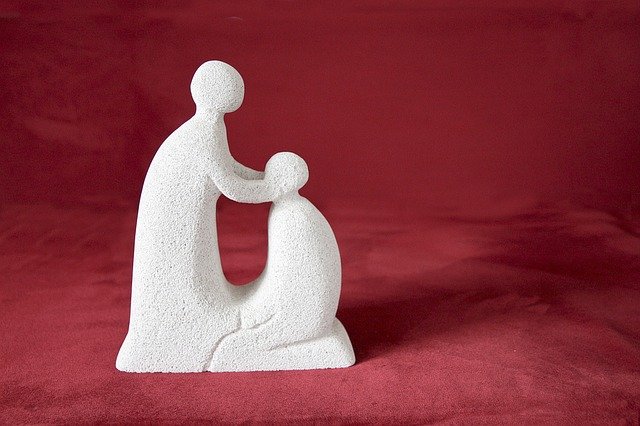In this May 21, 2021 article for Aeon, Brandon Kohrt, associate professor of psychiatry and behavioral sciences at George Washington University.
In this article, Kohrt tells us about his own discovery that healing from mental and emotional trauma is a collective struggle.
He tells us his experiences in various countries where people would have conversations with peers, priests, health workers, to describe their struggles. He describes how these simple conversations would lead to visible signs of emotional relief. He asks these important questions: “Why do humans spend minutes everyday…comforting others in distress, even when that’s not our profession? Why do humans support one another, and why does it look similar across cultures and throughout the history of species?”
Kohrt looks to evolutionary to understand this human behavior. He discovers that emotional regulation is a “dynamic interpersonal process”. Using the language of the neurosciences, he goes on to explain what happened during emotional consoling, and why it is an important process in everyday lives. He then makes this conclusion: “Friends, family, and social groups are kinds of ‘extended frontal lobes…They help us to calm down and cope with loss, trauma, and violation”.
Kohrt goes on to discuss the implications of these insights to social life during the pandemic and offers suggestions on addressing the degradation of mental health in the year of lockdowns.
Editor’s Note: This article is important for various reasons. First, it drives home the realization that one year of lockdowns has created highly stressed and traumatized societies. Second, it explains why, despite this age of crisis, the division between people continues to grow. Third, it allows us to understand how evolution has equipped us all to heal each other from the collective trauma.
One year of lockdowns has placed us in perpetual stress. Unknowingly, we have come to regard our neighbors as enemies. In this state, it is difficult to trust, to be vulnerable, and by extension, emotional consolation and healing become impossible.
This article is showing us that if we want to get fear and trauma out of our societies, we have to re-learn to connect with each other, to learn each other’s language, to be present for each other.
Read Original Article
Read Online
Click the button below if you wish to read the article on the website where it was originally published.
Read Offline
Click the button below if you wish to read the article offline.
You may also like
-
Can we change the world with our minds?
-
Science shows power of belief: Mere suggestion of side effects is enough to bring on negative symptoms
-
Are we agreeing that governments can breach our fundamental human rights?
-
To be truly free, we must overcome the prison we have created for ourselves
-
Dr. Zach Bush: We can rebuild a nation built on integrity
